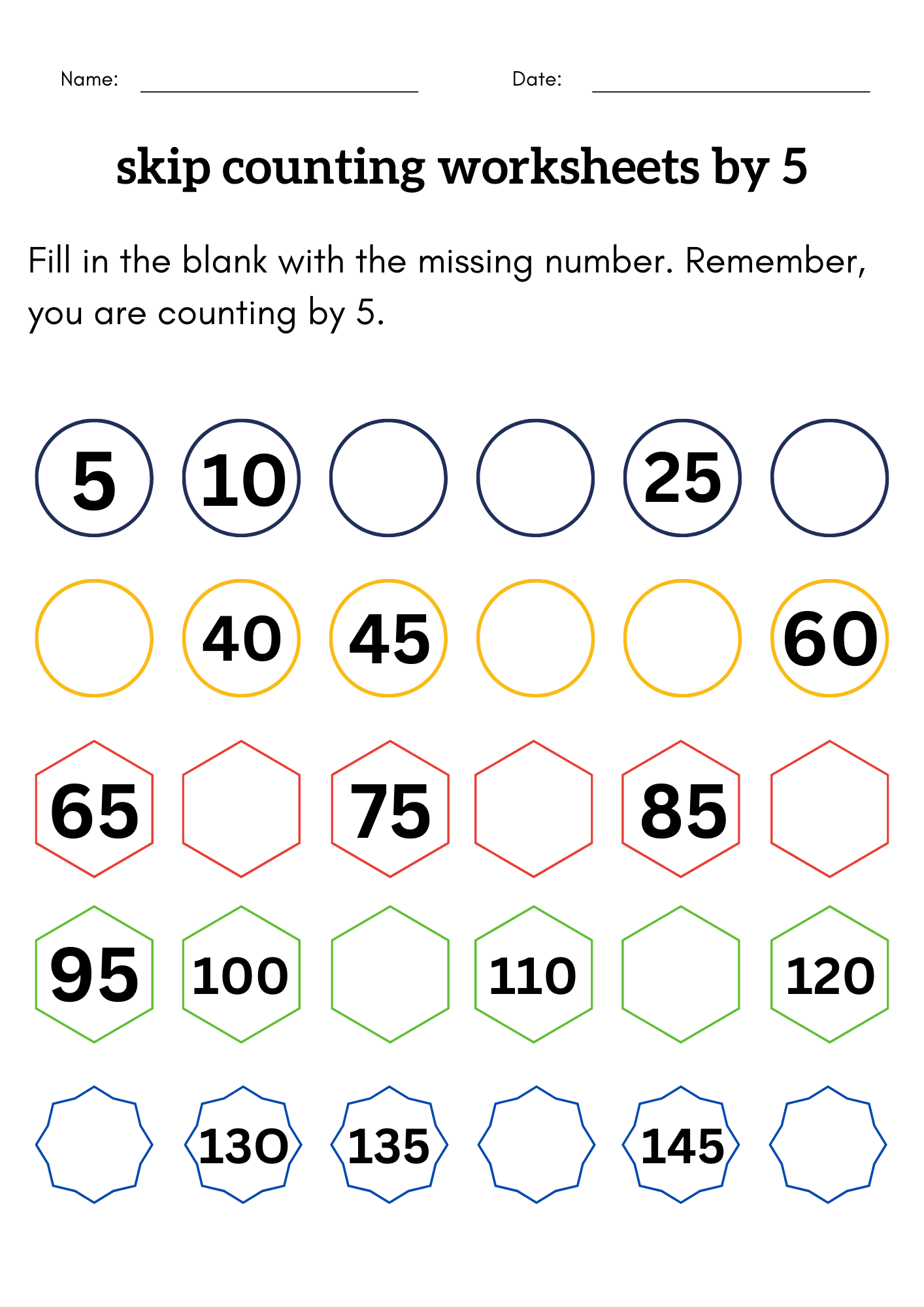Counting by fives is a fundamental math skill that helps children understand the concept of skip counting and multiplication. Skip counting by 5 involves counting by multiples of 5, such as 5, 10, 15, 20, and so on. This method of counting is useful for quickly counting large quantities or identifying patterns in numbers.
Learning to skip count by 5 is essential for developing number sense and improving mental math skills. It is a foundational skill that lays the groundwork for more advanced mathematical concepts. By mastering skip counting by 5, children can develop a strong understanding of multiplication and division, as well as improve their ability to solve complex math problems.
When skip counting by 5, children can easily identify patterns in numbers and recognize the relationship between multiples of 5. This skill is particularly useful when learning multiplication tables, as it helps children quickly calculate the product of any number multiplied by 5. By practicing skip counting by 5, children can improve their mental math skills and become more confident in solving math problems.
One fun way to practice skip counting by 5 is to use a number line or a hundreds chart. Children can start at 0 and count by fives all the way up to 100, marking each multiple of 5 along the way. This visual representation helps children see the patterns in numbers and reinforces their understanding of skip counting by 5. Additionally, using manipulatives such as counting cubes or counters can make skip counting by 5 more engaging and interactive for children.
In conclusion, skip counting by 5 is an essential math skill that helps children develop number sense, improve mental math abilities, and build a strong foundation for more advanced math concepts. By practicing skip counting by 5 regularly, children can strengthen their mathematical skills and become more confident in solving math problems. Encouraging children to practice skip counting by 5 in a fun and interactive way can make learning math more enjoyable and help them become more proficient in their mathematical abilities.
